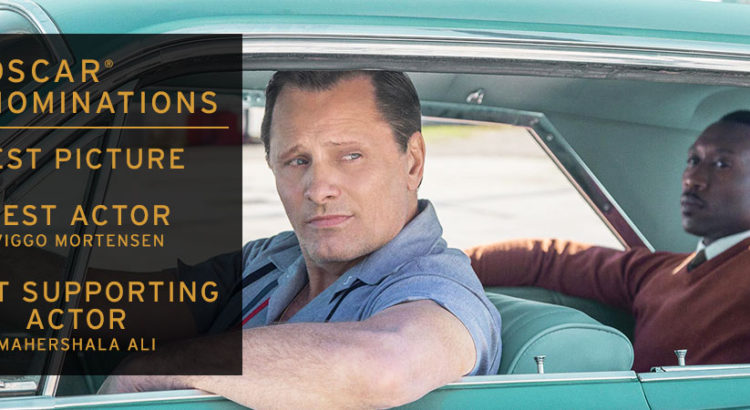Green Book was a good movie. I laughed multiple times, felt emotionally connected with the characters, and left feeling uplifted. However, Green Book was a film made for the early 2010s that just cannot find its place in 2019. I went into the theater on a Tuesday night after Green Book has been showing at the State for over three months expecting to have the place to myself, but it was almost full. People are still flocking to see this movie and it is a strong contester in several fields for the Oscar’s coming up this weekend. So what do I have against this well-loved film?
After conversations over the past few years have sprung up about representation of minorities on the big screen we have seen more movies with minority casts and those movies are being better represented by the top awards shows. Three of the movies nominated for best picture at the Oscar’s focus largely on Black characters and issues (Green Book, BlackkKlansmen, and Black Panther) which is surely a move in the right direction. However, Green Book is the least progressive of these three films. What makes BlackkKlansmen and Black Panther such important, compelling films is their feature of Black main characters, focusing on empowering tales, made by Black directors and screenwriters. These are all the ways in which Green Book is lacking. In Green Book the main character is a white man (hence Viggo Mortenson’s nomination for best actor and Mahershala Ali’s nomination for best supporting actor), the Black character is used as a vessel to humanize the main, white character, and the film was both directed and written by, you got it, more white men. Green Book is not about sharing the story of a fantastic, highly-educated, queer, Black, virtuoso pianist who fought the barriers of his time; Green Book is about another white man from the 1960’s and how he moved past his biases. To make things worse, Dr. Don Shirley’s family have come out saying that Green Book falsely represents his life and the nature of his relationship with his driver. The movie makes Tony Vallelonga into a hero, playing into the white audience’s white savior complex and their desire to feel a bit less problematic in today’s world.
The film industry will not make progress toward being a more inclusive and representative space until it learns that representation means much more than the presence of minorities; representation means featuring minorities as complex, main characters in stories told by their peers. When we see more of these films represented in the top awards shows the academy can finally say that they are truly representing the American audience in a way that is not tokenizing. The Oscar’s should be recognizing the amazing films that are paving the way for American cinema. If Beale Street Could Talk is a perfect example of a gorgeous film that features an almost entirely Black cast, is based on a book written by a Black man, was directed and adapted for the screen by a Black man, and represents race relations of the 1960’s in a nuanced way. Another film that was snubbed by the Oscar’s this year is Sorry to Bother You. This movie was unique and compelling, quickly formed a cult following, and easily should have earned a nomination for best original screenplay.
While I enjoyed Green Book, I simply cannot say it was a great or progressive film and I will be highly disappointed if it wins best picture at the Oscar’s this Sunday. The American audience is ready for good movies that empower minorities, we saw that when Black Panther shredded box office records last spring. Now, it is Hollywood’s job to make sure we get movies that can stand up to that legacy. Personally, I would love to see a movie that showed Dr. Shirley’s path to becoming a world-renowned pianist and delved into the complex nature of being a queer black man in 1960’s.
Image courtesy of the State Theater.


